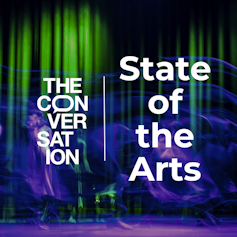So far the UK 2024 elections have been dominated by discussions on migration and fiscal responsibility. As a result, the space dedicated to arts, culture and music has felt relatively minuscule.
But there are important issues to be addressed in these industries, especially in the face of city councils slashing their culture and heritage budgets – such as Birmingham in February. This has been likened to creating a “cultural wasteland” and causing “cultural deprivation”.
Despite both parties calling the sector “world leading”, Labour and the Conservatives have failed to give any concrete commitments for funding the creative industries.
The Conservatives underlined their spending to date (including the unprecedented £1.57 billion support package during COVID), pointing to the tax incentives they deployed for pubs and hospitality businesses. Looking forward, they propose launching a review of the nighttime economy in England, looking at how to reverse the decline in pubs and clubs and how to make our towns and cities great places to go out. (This is similar to what the Greens have proposed, focusing more on giving decision-making power to local authorities.)

This article is part of our State of the Arts series. These articles tackle the challenges of the arts and heritage industry – and celebrate the wins, too.
Meanwhile Labour, while omitting any concrete financial commitment, has proposed an industrial strategy to create “good jobs” and accelerate growth in the music and nighttime industries. This is not very different from the Conservative government’s Creative Industries Sector Vision document, which was published in mid-2023.
The Greens have, on the face of it, made the biggest financial commitment to the UK’s creative industries of all parties – proposing a £5bn investment, distributed to local government, to fund keeping local museums, theatres, libraries and art galleries open and thriving. But again, this omits nighttime industries like pubs and clubs. At the same time, they are offering to exempt cultural events – including everything from theatre and museum tickets to gigs in local pubs – from paying VAT.
The Lib Dems’ solution to supporting the sector financially is applying to fully participate in EU Creative Europe programmes, and relying on funding via the National Lottery. They have also promised to establish “creative enterprise zones” to grow and regenerate the cultural output of areas across the UK.
In Wales, the Plaid Cymru manifesto opposes cuts to the country’s cultural organisations. It recognises the negative effect such cuts have had on the sector, threatening the existence of vital cultural, heritage and arts organisations.
Interestingly, Plaid is the only party clearly indicating that solutions for the sector should be a result of partnerships between stakeholders. It is also alone in proposing a concrete plan to support freelance workers – by creating a Welsh Freelancers Fund based on its 2021 Senedd manifesto, and informed by the Republic of Ireland’s Basic Income for the Arts scheme. This would affect many workers in the music and nighttime industries.
Based on previous announcements, it’s likely the SNP will be aiming at a similar solution informed by the Irish and Dutch models of basic income for the arts. The SNP’s proposed Percentage for the Arts scheme will require a percentage of the cost of any new construction project for public buildings, places or spaces in Scotland to be spent on community art commissions.
The UK Department for Digital, Culture, Media & Sport barely gets a mention in most of the manifestos. When parties have mentioned the department, they have prioritised the issues of sports education and ticket regulation.
Only the Greens and Lib Dems have indicated in their manifestos that sport and culture are important “anchors of wellbeing” in communities, and an “essential part of society”. This supports research that shows music has a fundamental impact on society, enhancing wellbeing.
Both parties highlight sport and culture as drivers of regeneration and sustainability – and the SNP is expected to adopt a similar stance based on its previous statements.
The Conservatives still wave the flag of the Music Hubs – partnerships that support and enable access to music education for children and young people within a local area. They will also continue supporting apprenticeships as a key pipeline of talent in the industry (with 12 months secured training).
Labour, the Lib Dems and Plaid Cymru have put more focus on access to art and culture, recognising it as an essential part of supporting children and young people to develop creativity. Labour has also proposed a Music Education Network – a “one-stop shop” with information on courses and classes for parents, teachers and children.
What’s missing from the manifestos
Discussions of the impact of Brexit on the music industry seem a thing of the past. The Greens and Lib Dems still mention reciprocal arrangements for the UK and EU musicians, allowing them to tour without obstacles – but only briefly.
Amid growing interest in artificial intelligence (AI) within the creative industries, only the Conservatives briefly mention AI in their manifesto. Similarly, copyright and licensing rules are only fleetingly touched on by the Lib Dems.
Among the organisations lobbying for the creative industries in the run-up to the 2024 election, UK Music has underlined that, as a whole, the sector contributes £6.7bn to the UK economy and employs 210,000 people – “as many as the insurance, steel and pharmaceuticals industries combined”. It has called for a “world-leading music strategy” for the UK.
The Night Time Industries Association is also asking for a comprehensive long-term plan that supports the recovery of nighttime industries after the pandemic, and encourages investments in skills and training of the workforce.
In its Manifesto for Grassroots Music, the Music Venue Trust criticised the deepening crisis of the sector. However, in these times of hardship, with a cost of living crisis and squeeze on family finances, the arts are being left behind – particularly when it comes to the focuses of major parties.

